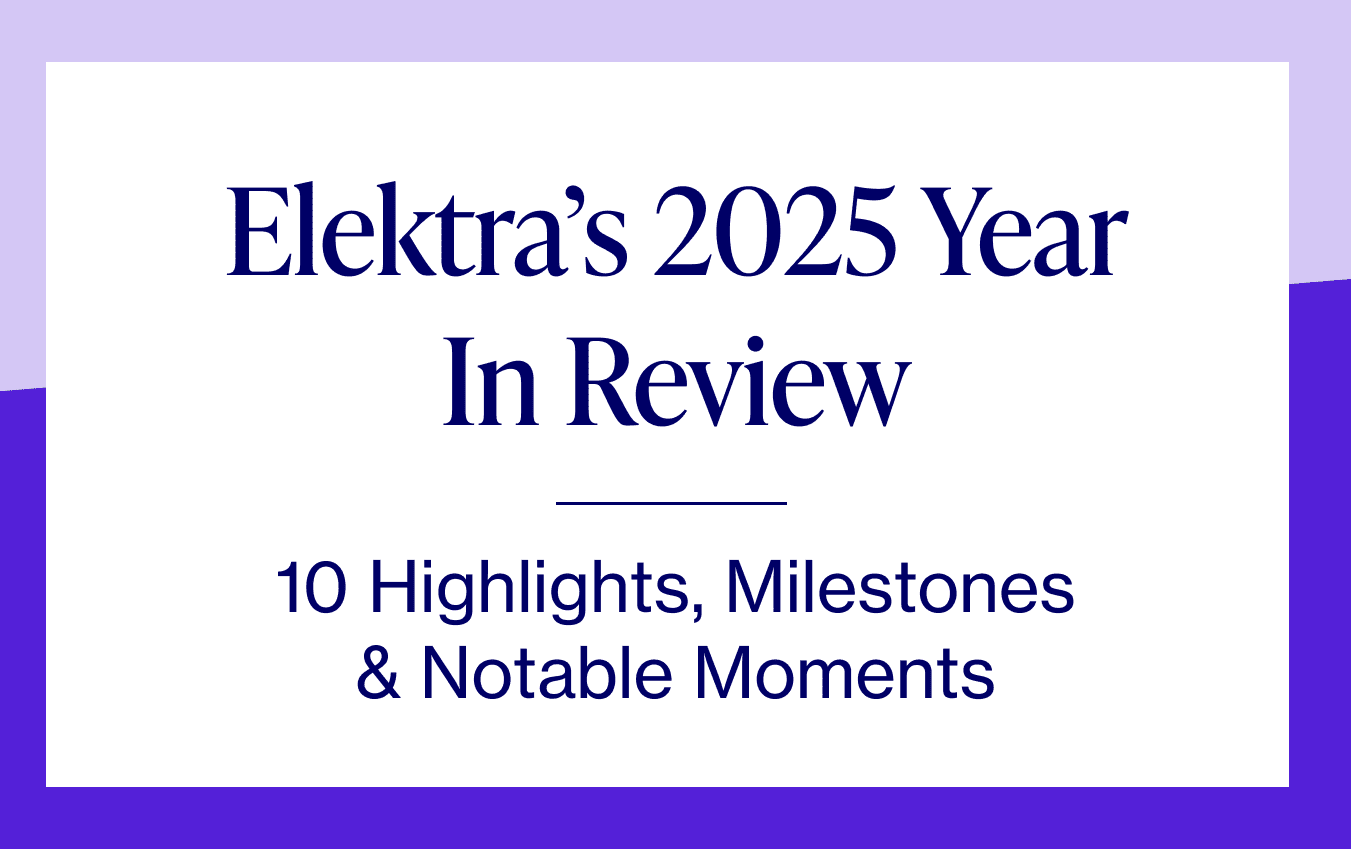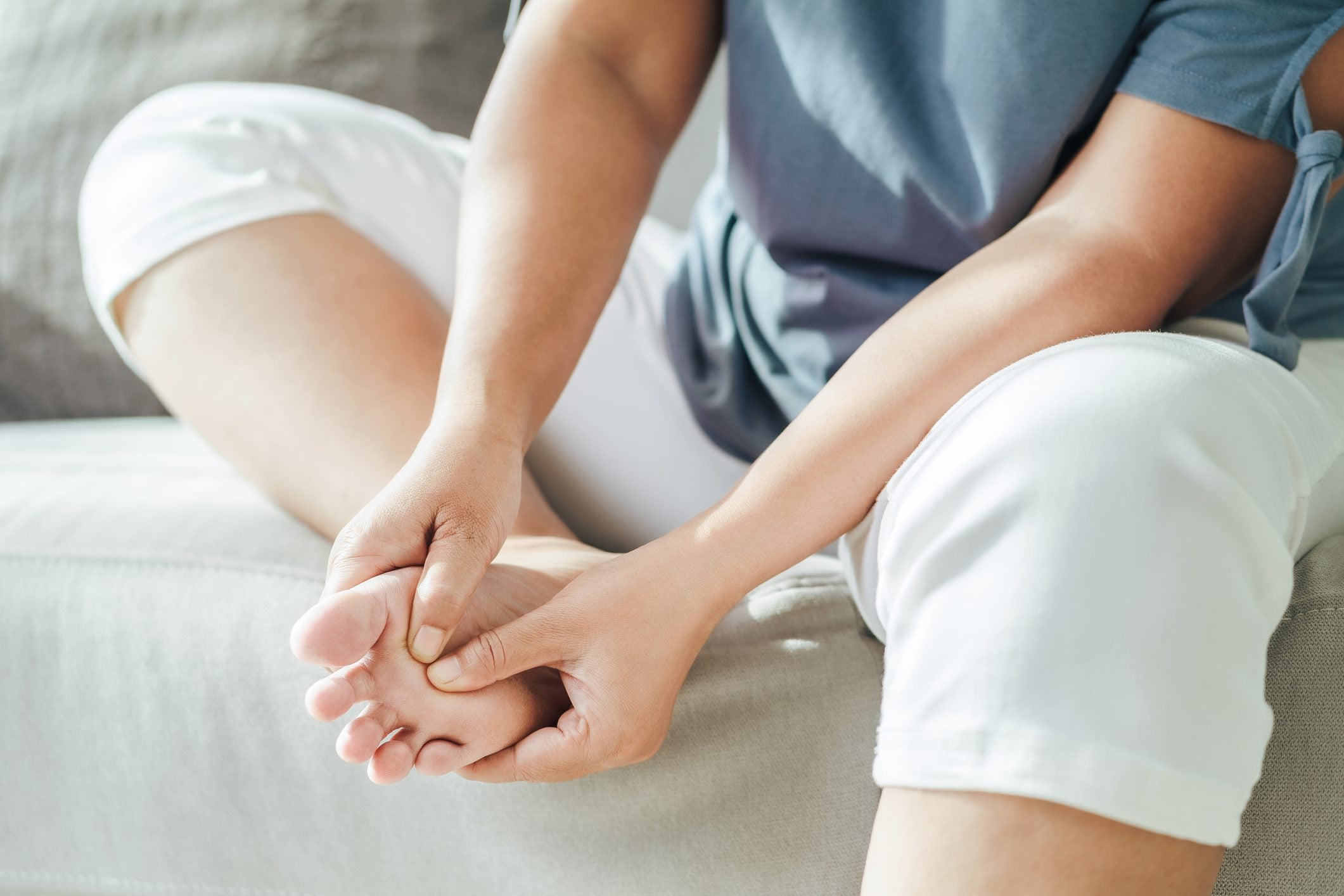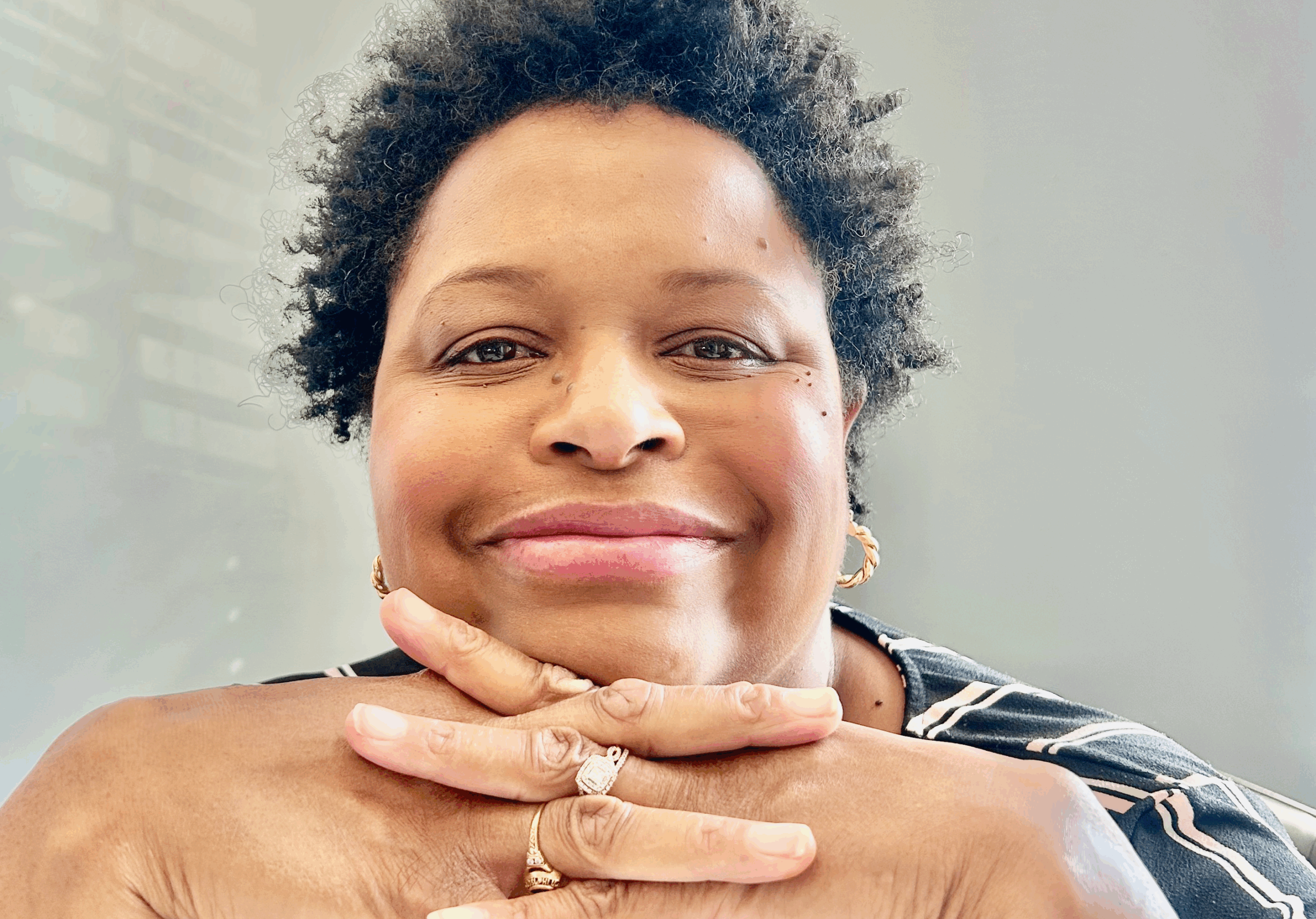
5 min read

Breasts feeling sore? Tender? Just kind of…bleh?
Welcome to the Sore Boobs Clubâ„¢
Take off your bra, and grab a seat!
As we say all the time at Elektra, no two women’s bodies are exactly alike.
But when it comes to breast discomfort, studies reveal that a whopping 60-70% of women experience breast soreness at some point in their lives! Women in perimenopause and post-menopause are (unfortunately) no exception…this is a VERY real menopause symptom that we don’t talk about nearly enough.
Don’t worry, you’re in very cool company: in a recent Red Table Talk interview, 54-year-old actress Salma Hayek got candid about the challenging breast changes she’s experienced throughout perimenopause: :
“My boobs were smaller! So was the rest of my body. But they have just kept growing. Many, many sizes. And my back has been really suffering from it. And not a lot of people talk about this.”
We may not have a ton in common with celebs, but boob problems?! Unfortunately, we can relate.
The nitty gritty (AKA the science)
(PSA: we resisted to urge to type “titty gritty.” You’re welcome).
The official term for breast pain or sore breasts is “mastalgia,” which comes in two forms: cyclic and non-cyclic.
Cyclic breast pain is caused by hormone fluctuations in estrogen and progesterone levels and typically occurs right before your menstrual cycle begins. Hormone levels increase the size of our milk glands, causing breasts to feel swollen and uncomfortable. For the most part, cyclical breast pain subsides come menopause, with certain exceptions for women using oral birth control or hormone replacement therapy (HRT).
Non-cyclical breast pain is NOT tied to menstruation, making it less predictable. This is the type that mainly affects postmenopausal women. Unlike cyclic breast pain, it’s usually a symptom of a specific condition, like a cyst, benign tumor, trauma, infection, fibrocystic changes in the breast tissue (i.e. thickened tissue with an increased number of breast cysts), or other condition (check out our full list).
When to seek advice
A QUICK PSA: Breast pain is usually not a sign of breast cancer. While it can be uncomfortable, it usually isn’t detrimental to daily life.
But according to Elektra’s Founding Physician, Dr. Anna Barbieri, there are some key breast changes that warrant medical advice:
- If your discomfort transitions into intense chest pain
- If post-menopausal breast pain is one-sided and persistent
- If breast pain is accompanied by a lump, inverted nipple, skin changes, redness and swelling, or nipple discharge
Check out our blog post Shining a Light on Metastatic Breast Cancer for a deeper dive.
So…what can you do about it?
Here are a few Elektra-approved pro tips:
👙Find yourself a bra that actually fits your breast size and shape! A comfy bra — sports bra or otherwise — can make a world of difference. Getting fitted at a department store is one option, but there are now a ton of inclusive, women-founded online stores as well (check out our Healthy Obsessions for our latest fave).
🌽Give cold or warm compresses a try. A bag of frozen veggies, especially corn or peas, works great! Applying it for 20 minutes at a time can help reduce swelling. On the opposite end of the temperature spectrum, a warm compress or heating pad works for some.
💊Look into over-the-counter medications and supplements with the approval of your healthcare provider. Ibuprofen, Vitex, and Vitamin E are a few options in your toolbox, as is evening primrose oil, which is derived from the seeds of a wildflower and is an omega-6 essential fatty acid hard to come by via diet alone. Check out our full list of supplement and OTC recommendations (as well as potential drug interactions and side effects).
Eager to learn more? Click here for our full guide to menopause and breast tenderness/soreness.
WHAT ELSE WE’RE READING
Women. 40+. Can. Still. Kick. Ass. Read about Oksana Chusovitina, the 46-year-old gymnast from Uzbekistan competing in her 8th (!) Olympics!
What does it mean to not desire sex in a sex-obsessed culture? An interesting piece on the limitations of sex positivity.
UC Davis Comprehensive Cancer Center received a $50,000 grant to study the effects of tumeric on joint pain for breast cancer patients on anti-estrogen drugs.
Comprehensive studies on brain health and menopause are long overdue: an important piece from the NY Times on why We Need to Know How Menopause Changes Women’s Brains.
HEALTHY OBSESSIONS*

Comfortable, sexy bras: Anaono
Founded by a breast cancer survivor, a bra company that finally represents the reality that women come in ALL shapes and sizes. Revolutionary.

Spelling Bee word game: NY Times
Did you know that reading, writing, and playing games can delay Alzheimer’s by 5 years? After you get addicted to this game, this stat makes for a great excuse.
* We’re not paid to feature these products. We just like them and think you may like them too.
KEEP CALM AND ELEKTRA ON



